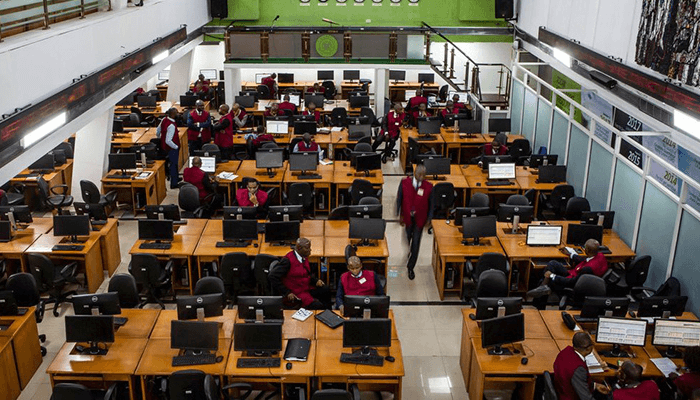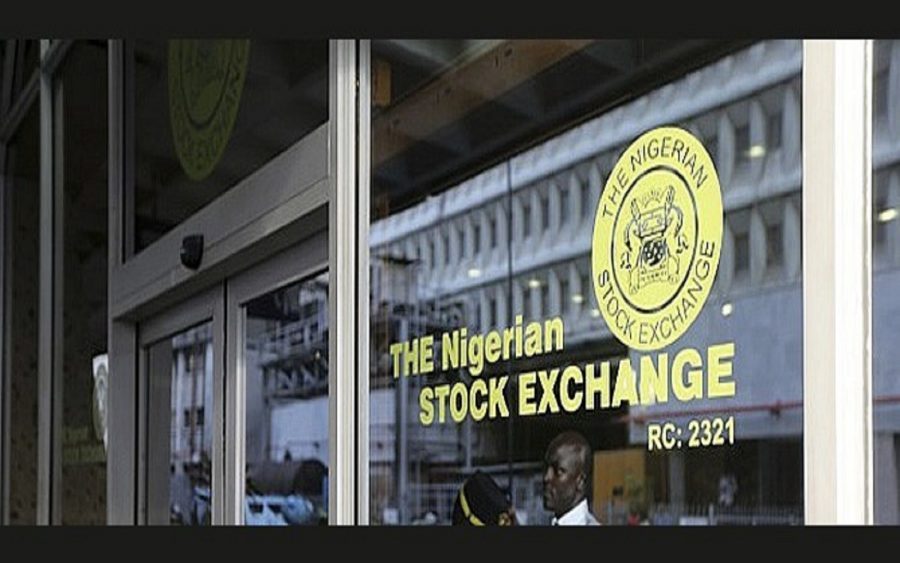Nigeria’s equity market closed the week with a 0.41% gain, adding N196 billion in value. The Nigerian Exchange Limited (NGX) All-Share Index (ASI) climbed from 108,053.95 points to 108,497.4 points, while market capitalisation increased from N67.418 trillion to N67.614 trillion.
The rise came despite investors’ cautious approach following key economic updates, including the Monetary Policy Committee’s (MPC) decision to maintain interest rates and Nigeria’s inflation report.
Join our WhatsApp ChannelInflation Data and MPC Decisions Influence Equity Market
The National Bureau of Statistics (NBS) released Nigeria’s inflation data last week, showing a decline in the headline inflation rate to 24.48% in January after rebasing, down from 34.80% in December 2024.
In its two-day meeting, the MPC retained the Monetary Policy Rate (MPR) at 27.50% while maintaining the asymmetric corridor around the MPR at +500 basis points/-100 basis points. The committee also kept the Cash Reserve Ratio (CRR) for deposit money banks at 50% and for merchant banks at 16%, alongside a liquidity ratio of 30%.
READ ALSO: Nigeria’s Equity Market Gains 0.87% As Investors React To MPC Meeting
Consumer Goods, Insurance Stocks Drive Market Growth
Despite declines in banking and oil & gas stocks, consumer goods and insurance stocks helped push the equity market into positive territory. This movement was driven by improved investor sentiment in select sectors, offsetting losses in other areas.

Analysts at Financial Derivatives Company Limited (FDC), led by Bismarck Rewane, noted that the first quarter of 2025 would see cautious optimism in specific stocks. They predicted that more companies would raise capital, increasing the supply of shares and potentially lowering prices.
“Stock prices will fall in February to reflect the new shares from bank recapitalisation,” FDC analysts stated.
Investor Caution Shapes Market Sentiment
The week’s positive close lifted the stock market’s year-to-date (YtD) return to +5.41%, while February’s return stood at 3.83%. However, investors remained cautious amid economic uncertainties.
Vetiva research analysts highlighted that market participants would closely watch how investors react to the Central Bank of Nigeria’s (CBN) decision to maintain interest rates.
“Looking ahead, all eyes will be on how investors digest the CBN’s decision to keep interest rates unchanged,” Vetiva analysts noted.
Market sentiment is expected to remain mixed, with investors weighing near-term opportunities against macroeconomic uncertainties. Analysts at SAMTL Research pointed out that corporate earnings releases and portfolio rebalancing activities would shape the direction of the equity market in the coming weeks.
Outlook for the Equity Market

The equity market’s performance will likely depend on how investors respond to ongoing economic developments. While positive movements in consumer goods and insurance stocks provided support, banking and oil & gas stocks struggled to rebound.
With more companies expected to raise capital, share prices could fluctuate as additional shares enter the market. Analysts anticipate that investor sentiment will be guided by corporate earnings reports and broader economic policies in the coming weeks.
As the month progresses, investors will closely monitor financial reports, interest rate policies, and market dynamics to determine their next moves in the equity market.
Emmanuel Ochayi is a journalist. He is a graduate of the University of Lagos, School of first choice and the nations pride. Emmanuel is keen on exploring writing angles in different areas, including Business, climate change, politics, Education, and others.
- Emmanuel Ochayihttps://www.primebusiness.africa/author/ochayi/
- Emmanuel Ochayihttps://www.primebusiness.africa/author/ochayi/
- Emmanuel Ochayihttps://www.primebusiness.africa/author/ochayi/
- Emmanuel Ochayihttps://www.primebusiness.africa/author/ochayi/

















